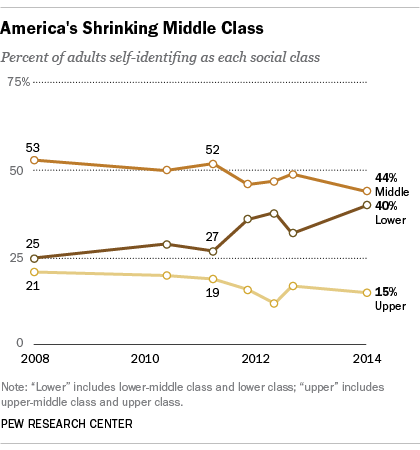Jon Perr displays ten graphs that chart various economic measures over the last century or so. These include the share of total income by the top income brackets, CEO-to-worker compensation ratios, marginal tax rates for the highest income levels, effective tax rates, average incomes, and more. The graphs are spectacular in their clarity even if depressing in their implications. I reproduce just one because it is illustrative of a point that I wish to make.
[Read more…]

